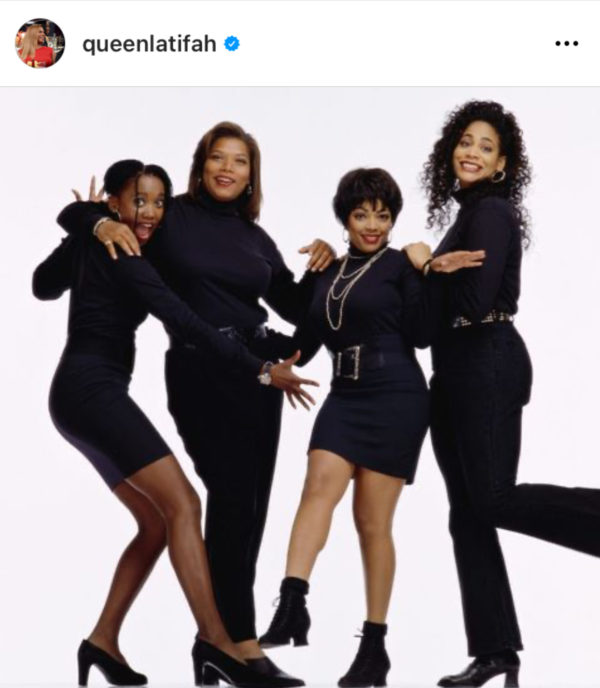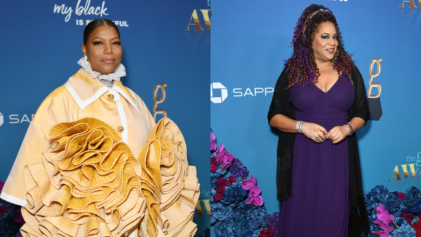Actress Queen Latifah has reached a place in life where openly discussing her own struggles with body image is no longer taboo.
For the greater part of her career, the New Jersey-bred rapper has proudly rocked a fuller and more voluptuous figure. Her ability to embrace herself at any size has been inspiring for her many adoring fans throughout the years, however, Latifah is clear that her journey to self-acceptance was not without its “dark” moments.

“Around 18, I just remember looking in the mirror and I said to myself, I was like, ‘Dana, you have a choice. You are either going to choose to love yourself, or you’re going to choose to hate yourself. What you going to do?’ And I chose to love myself,” she told ESSENCE.
But while Latifah, whose birth name is Dana Elaine Owens, found security in owning her look, it does not mean she was immune to the pressures of beauty standards dictated by the head honchos in the entertainment industry.
By the early ’90s, she had already asserted herself as a female icon in the hip-hop community with records like “U.N.I.T.Y” and “Ladies First,” along with appearances on television shows and in the film “New Jack City.” But by 1993, the multi-hyphenate entertainer’s career had reached new heights as she and a cast of five other Black actors — Erika Alexander, Kim Fields, Kim Coles, Terrence C. Carson and John Henton — starred on the FOX network hit show “Living Single.” The sitcom was based in Brooklyn and followed the lives of a group of 20-something men and women navigating life.
Despite the show pulling in top-notch ratings and gaining viewership from a minority audience, Latifah recalled the network wanting more from her and the cast. The request is one that still feels like a thorn in her side to this day.
“I remember when I was doing ‘Living Single’, the word came down that we needed to lose weight and it was like, what? Now mind you, we have the number one show among Black and Latino, Latinx audiences, at the time,” recalled the Emmy nominated actress.
“We have a hit show and you’re telling us we need to lose weight. Telling us this exactly. Why are you telling us this? We look like real people. We look like real women. We all look different,” she continued. “And those are the kind of things that come to you that can chip away at your self-esteem. That’s the kind of insensitivity that we’re fighting against right now. That’s the kind of shame planting that can destroy self-esteem.”
She added that the request was “disheartening” and “disappointing” but not one she was willing to oblige, let alone subject her castmates. “It made me angry and it made me just want to fight against that. I felt like we were representing women in our community and they needed to see that kind of representation,” she added. “That did bother me. But of course, it didn’t make a difference. I didn’t change anything as a result of it. If anything, I’m just the rebel. Don’t tell me what to do, because I’m going to do the opposite. But it did make me cognizant.”
The show went on to air 118 episodes over the span of five seasons — running from 1993 to 1998. It remains a cult classic among the Black community, which remains hopeful for a reboot.
